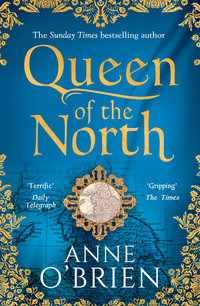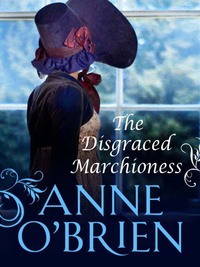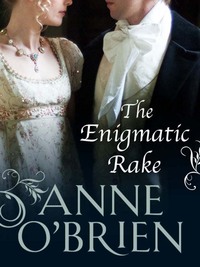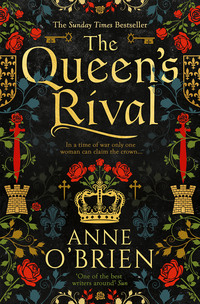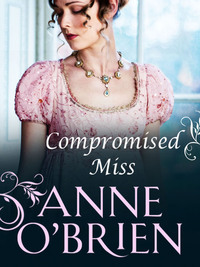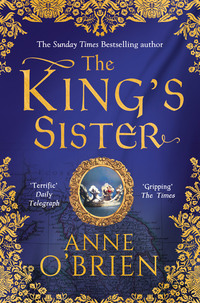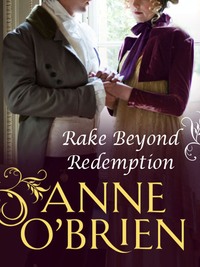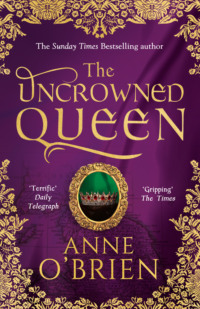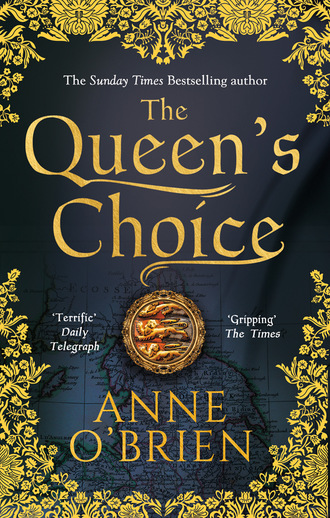
Полная версия
The Queen's Choice
Earl Henry slid a speculative glance but his response was smooth and I felt that he was restoring us to the realms of polite discourse. ‘A mere memory of youthful frictions. Richard and I were raised together, and not always amicably, I suppose because our tastes and interests are vastly different. Richard is the most inept wielder of a sword that I know. There you are. Nothing more and nothing less than childhood conflicts. You might say that I should have grown beyond such trivial grievances.’
‘I would not be so indiscreet as to say any such thing, sir.’
I did not believe him. There was a stern brooding involved here, but our acquaintance was so transient that I must allow his diversion, however much I might like to discover more.
‘No. I don’t suppose you would,’ he replied, lightly now. ‘Not only a lady of common sense but one of great discernment, I think. And of considerable presence. Duke John is a fortunate man to have a wife who is as handsome in character as she is in person.’
I wondered if he was guilty of a soft mockery at my expense, for I had never been considered a great beauty, even when touched with the kind hand of youth, and so I challenged him, my brows a little raised, but he met my provocation directly and held it. Once again I experienced that uncomfortable little jump of my heartbeat; a warmth spreading beneath my bodice as if a flame had been lit.
And I was intrigued. There was no mockery in his steady regard. Instead there was a curious arrest, almost a bafflement as if some unexpected emotion had intruded on our innocuous exchange of opinion. Even the air felt heavy with portent. His lips parted as if he would express what was occupying his thoughts.
Then it was gone, the moment broken, the tension that held us falling away, so that the air settled quietly around us again, as my husband, abandoned by Burgundy, rested a hand on Earl Henry’s shoulder, and I was left to wonder if I had imagined the whole episode as John observed: ‘You were a child when I saw you last. And here you are, Earl of Derby, with a reputation as an expert jouster.’ His eye twinkled. ‘How old were you? Ten?’
‘About that. And I remember, sir.’ Earl Henry was at ease again, and whatever he had been about to say was lost for ever. ‘You gave me a hunting knife when we rode out at Windsor and I had lost mine. I still have your gift. It has a fine engraved blade. If I recall, I didn’t let it out of my sight for months.’
John laughed. ‘You’ll do your father proud. It’s good to have an heir. Richard will have a long time to wait for his bride to grow up and bear him a son.’
Once again we inspected the group on the dais where Richard spoke gravely to King Charles, who looked mildly interested, and Isabelle threaded her fingers through the gems on her girdle.
‘Do you stay for the whole of the celebrations?’ Earl Henry asked.
‘Unfortunately, yes. My wife will not allow it to be otherwise.’
With promises to meet again, we prepared to follow the royal party, Earl Henry saluting my fingers with a chivalric grace worthy of the most famous of troubadours.
‘Thank you for your discretion, my lady.’
‘It is my pleasure, my lord.’
‘And what was that about?’ John asked as Earl Henry threaded his way to his father’s side.
‘I have promised to keep secret the fact that Earl Henry detests his royal cousin,’ I replied, following his progress, struck again by the unconscious grace.
‘I expect King Richard knows it full well,’ John growled. ‘We’ll do well to keep out of English politics, for our own health. And particularly out of the sphere of that young man. As your uncle of Burgundy was kind enough to advise, although why he should think that I cannot judge the matter for myself I have no idea. Who knows more about treachery than I? Burgundy says to steer clear.’
‘Did he?’ I was surprised.
‘He considers the Earl of Derby to be a dangerous fire-brand. There is already the taint of treason about him. He raised arms against Richard ten years ago.’ John eased his shoulders beneath the weight of bullion. ‘I see no danger but we will keep our friendship warm but appropriately circumspect.’
It was a warning but softly given and not one I needed. I had no intention of becoming involved. As for Henry, Earl of Derby, ours was a mere passing acquaintance. A friendship. An opportunity to give open and honest exchange of opinion, where neither of us needed to be circumspect. That was trust. Was that not the essence of friendship?
But then I recalled that first brilliant moment of awareness. Something, some close link, like those in the Earl’s glittering livery chain, had scattered my thoughts like the stars in the heavens, nudging into life a longing I could not recognise. It disquieted me, unnerved me. How could it be that I could trust a man within a handful of minutes of my setting eyes on him? I was certainly not given to immoderate confidences.
And he stayed in my mind as I retired to our cramped chamber to rest my ankles that, in these early days of my pregnancy, had a tendency to swell in the heat. With soothing cloths soaked in a tincture of red wine and cinquefoil, my hair loosed from its confines, I lay back against the pillows and had no difficulty at all in summoning the Lancaster heir into my presence. The fan of lines at the corner of his eyes that had smiled so readily, when not shadowed and sombre. The flare of passion when he had admitted his dislike of his King, even if one born out of childhood antipathy. The austere nose, a mark of all the Lancasters, that spoke of command. The agile carriage, albeit swathed in fragile cloth, of a man of action. Instinctively I knew that the extravagantly ringed hands could wield a sword and manage reins with force and skill. And as for the pride, it infiltrated his every movement, every turn of his head. He too knew his own value as a scion of the Plantagenets, raised into it by a powerful father, the most influential of the sons of old King Edward.
‘This is inappropriate, for a married women who is content with her situation,’ I announced aloud, dismayed by the detail of my recollection. ‘And one who is carrying a child. He is nothing to you.’
Yet the sense of distress would not leave me. And the little punch of guilt. Engaged in a marriage not of my choosing to a man certainly of advanced age, I had discovered through this marriage, and to my delight, an unexpected blessing. John had given me his friendship and a deep respect that proved to be mutual, as was the firm affection that underpinned our life together as the years passed and our children were conceived. I could not have hoped for a better mate when, through necessity as a child of a royal family intent on building powerful alliances, I had been placed in this marriage with the Duke of Brittany.
Did I know love in my marriage? No. Not if love was the emotion of which our minstrels sang, extolling the heating of blood and heart so that the loved one was essential to the drawing of breath. For John I experienced a warm acceptance of all he was to me, but I was not dependent on him for every moment of happiness. Nor was I a necessity for him. We were content together but distance, when John travelled to the far reaches of his domains, did not destroy us.
Henry of Derby, in the space of that brief meeting, had forced me to consider an entirely new landscape.
‘What is it, my lady?’ Marie de Parency, the most intimate of my Breton ladies-in-waiting, was instantly at hand, always watchful for my needs.
I shook my head, sighing as I stretched on my bed, trying for comfort as my ankles throbbed. ‘Hand me my rosary, Marie. I have need of a self-inflicted penance.’
A small flame that had been lit in some far recess still flickered, but of course it had not been lit for him. Earl Henry had been blessed with true love with his wife, now sadly departed this life. I closed my eyes as I spread my hands on my belly where the child grew, confident in the knowledge that my own strange discomforts would soon vanish.
Early pregnancy made a woman overly imaginative.
*
A grand hunt brought to conclusion the wedding of Richard and Isabelle. We made a combined party, it becoming evident that the Lancaster family was as fiercely keen on hunting as we were in Brittany. An occasion of much laughter and chatter, of reminiscence and proposals for future meetings. My pregnancy offering no hindrance to my participation, when we halted in a clearing in the woodland to draw breath, I found myself in the close company of Earl Henry.
I had been aware of him, riding in the forefront, from the moment the royal huntsman had given us the office to start, and I had seen enough of him to know that he was a peerless proponent of the sport. Not that I had watched him, of course. Riding at a more sedate pace, not always of my own choosing, beside Duchess Katherine, I had made the most of the opportunity to darn the holes in my knowledge of this family.
Now it was Earl Henry who manoeuvred his horse to my side while I determined to keep him at an amicable distance. I noticed that he had dispensed with the white hart on his gold livery collar.
‘I see you number horsemanship amongst your many talents, Madam Joanna.’
‘As you have a silken tongue amongst yours, sir,’ I replied smartly. ‘This wretched animal, lent to me by my uncle of Burgundy, has barely extended herself out of a slow trot.’
He smiled at me. And I smiled back.
And there was that same intensity that had unsettled me on the previous day. A sense of closeness, of keen understanding. More than that. Like the click of a key turning in the lock of a jewel coffer so that all the intricate parts slid smoothly together as if our acquaintance was of long-standing. Why should I resist? Why should I not take him as my friend? I had few outside my immediate family. The household in which I had been raised in Navarre, redolent with suspicion and vicious deeds, had not encouraged friendship. I would enjoy what this man had to offer me, and it would be no sin.
This thought in your mind is not friendship, a whisper in my mind.Don’t pretend that it is. This is entirely different. Have a care.
Wary now, even dismayed, I hid it behind a light smile and even lighter remark.
‘That is a fine falcon you have, my lord.’
The Earl reached across to take the bird from his falconer, removing her hood, then one of his gauntlets so that he could run his hand affectionately over her head and wings. The finely marked bird bobbed her head and shook out her pinions.
‘She is beautiful,’ he agreed, indulgently possessive. ‘She was bred from my own birds at Hertford. She is inordinately partial to chicken, when she can get it.’
‘Extravagant!’
‘If she is worth her value to me, then it behoves me to feed her well.’
I stroked the feathers of her neck, admiring the fervour of this man in his appreciation for his hunting hawk. ‘What will you do after this gathering, my lord? I hear you have been on Crusade.’ Having discovered as much from Duchess Katherine.
‘And I might again,’ the Earl was replying as, with dexterous fingers, one-handed, he re-hooded the falcon. ‘I have a desire to return to Jerusalem. To stand before the Holy Sepulchre and experience God’s infinite grace. But I’m more like to go back to England. To see my own children, to take over some of the administration of the Lancaster estates. I have two young daughters as well as four sons to raise. The boys are as strong and active as a small herd of hill ponies. I think you have sons. You’ll know what I mean.’
His enthusiasm was compulsive. ‘Indeed I do.’
‘And then…’
Gravity descended, like an obscuring shadow. I considered it to be born of a concern long held, some bone of contention long debated. I saw it in John when he broached some intricate matter of business, most often Breton trade disputes with our mercantile neighbours.
‘Is there a problem for you at home, sir?’
Handing the falcon to John who, approaching, was eyeing the bird with some envy, Earl Henry considered for a moment, then replied with striking frankness:
‘I have a need to return. Sometimes it seems to me that my position in England is under a subtle duress. I am being pushed to the margins of political life. Positions and dignities are given elsewhere. My cousin Edward of York is preferred before me, even though as heir to Lancaster my supremacy is unquestionable.’
So here was pride again. And rightly so. With the death of two of King Edward’s sons, Edward of Woodstock and Lionel, Duke of Clarence, the Lancaster heirs with their true male line were foremost in the land after the King Richard. As I had suspected, the hostility between Earl Henry and King Richard, first cousins though they might be, was not merely a remnant of childhood tussles in the mud.
‘Richard fears me,’the Earl said, the line between his brows dug deep. ‘I dare not be absent from England any longer. It might give our King the opportunity to find some means of casting a pall of disgrace over my family. That must not be. My father is ageing. The duty is mine to protect and hold fast to what we have, and fight for what we should have.’
‘Why would he fear you?’ I asked bluntly. ‘Do you threaten him?’
‘It has to be said that I did,’ the Earl admitted. ‘In my youth I was one of the five Lords Appellant who forced Richard to rule more circumspectly after we removed his favourite de Vere from the scene. A decade ago now, but it will rankle still. Richard hadn’t the strength to oppose us then, but he has never forgiven us.’
Which explained a lot. ‘Hardly the basis for a sound friendship.’
‘As you say. Although why I am burdening you with this, on a fine hunting day, I have no clear idea.’
‘Because I can be a good listener,’ I said.
He looked at me, eyes as incisively watchful as those of the hawk on John’s fist, but there was a smile there too.
‘So that’s why I’ve been lured into this eddy of self-pity. Would you tell me that all is lost, between Lancaster and the King?’
I thought about it as my mare tossed her head, deceptively eager to be on the move. ‘I think you could well redeem yourself. I think you should…’ I stopped. I was in no position to give him advice. He would find me intrusive at best, unjustified at worst.
Earl Henry tilted his head. ‘Do you advise your husband in matters of government?’
‘Most certainly I do.’
‘Does he accept it?’
I thought about this. ‘Sometimes.’ And paused under John’s sudden acerbic scrutiny. ‘Often.’
‘Almost always,’ John added from behind my shoulder. ‘I would not dare do otherwise. She has a rare talent for seeing the smoothest road between two irreconcilable parties. I’d take her advice if I were you.’
He rode off, still in possession of the hawk, leaving me to collect my composure.
‘Then tell me, Madam Joanna. What should I do?’
‘You should go home. Be gracious and charming on all occasions. Never criticise Richard’s choice of counsellors. Make friends with your cousin of York…’
I hesitated, seeing a glint of speculation in his eye.
‘Don’t stop now. I stand corrected and ashamed for all past behaviour.’
How could I not continue? The rich wine of European government and intrigue ran in my blood. ‘Then this is what I think. Set your jaw and tolerate Richard’s behaviour towards you. It may be nothing more than jealousy and spite. He cannot harm you. You have your own authority over your Lancaster lands. How can he destroy your illustrious name? Give him gifts on every possible occasion and make yourself pleasant to Isabelle. You have daughters. You know how to do it. She likes dolls.’
‘What excellent advice.’ And then, smoothing the leather of his reins between his fingers as he considered:‘There is some pressure on me to marry again. It has been two years since Mary’s death. I have resisted taking a new wife so soon, but it would be wise, even if I have no need of an heir. A strong alliance with one of our English families would be good policy. It behoves me to do it, whatever my personal inclination.’
A coldly sobering thought that took me aback, when it should not have. Were we not surrounded by death; by marriage and remarriage to tie powerful families with bonds of blood and allegiance? Would John feel a reluctance to remarry if I were to die within a few months in childbirth? Or would he wed again within the year? I was his third wife. He might happily take a fourth, and why should he not? Marriage for us was a matter of politics, not of passion, and Brittany must look to the security of her borders. My husband would be looking for another bride, and perhaps another Valois princess, within the week of my death. Which made me observe, with an intimacy I could not claim:
‘You were fortunate indeed, sir.’
‘In what manner?’
‘To find such love with your wife. That you would consider not marrying again after her loss.’
He looked at me, his brows raised in query.
‘It does not come to everyone of our rank,’ I reminded him, not that he would need the reminding. ‘Some would say it is a rarity.’
He looked as if he might have replied with some polite usage. Instead:‘Are you happy in your marriage?’
Since no one had ever asked such an intrusive question, I did not readily reply. I had never had to consider it in quite such terms. Content yes. Happy? What constituted happiness? And for a moment I resented the question. But since mine to the Earl had been very particular, I could hardly take issue with him. But I was aware of the chill in my voice.
‘Why do you ask that? Do I appear discontented?’
‘No. But your husband is more my father’s age than mine. How old are you?’
‘Twenty-eight years.’
‘As I thought. We are much of an age. I warrant the Breton Duke is at least in his fiftieth year.’
‘And a better man I do not know.’ I was sharp. I would not be pitied, or made to feel uneasy by what could be counted an impertinence. ‘It could have been worse.’ Never had I spoken so openly, so plainly. ‘My father was not known for altruistic gestures. I could have been married to a monster such as he. I thank God daily for an amenable husband who speaks to me as an equal, considers my wellbeing before his own and does not berate me when I am undoubtedly extravagant in the purchase of a gown or a new hound. No, I have never experienced the love that came to you and your wife, sir, if that is the overblown passion of which my troubadours and minstrels sing, but I have experienced much affection, and for that I am grateful.’
Earl Henry inclined his head in acceptance of what was undoubtedly a reprimand. ‘Then I too will thank God for his blessings on you. It was not my intention to discomfit you. If I have offended, I ask pardon.’
‘You have not.’
Off to our left, a horn blew, as if to call a halt to such an exchange. We gathered up our reins and turned our mounts to follow the massed ranks.
‘And will you?’ I asked, importunate to the last.
‘Will I what? Return to England?’ He was thoughtful. ‘Yes. I think I would be wise to act on your advice.’
But that is not what I had meant. I should have let it lie. I did not. ‘Will you wed again?’
He turned his head to look at me, foursquare, bringing his animal to a halt again so that others perforce must jostle round us. His eyes skimmed my face.
‘I have no plans. I have not yet met the woman whom I would choose to marry,’ he said simply.
His gaze as bright as the dark jewels on his breast, Earl Henry lifted his hand, so that I thought that it was his intention to touch my arm. Instead he raised it to his cap, to touch the feather secured by a jewelled pin in a smart salute. Then, using his heels, making the high-bred animal he rode jump, he urged his horse on. Another raucous blast prevented any reply from me as we once more followed the hunt, the hounds picking up the scent of our quarry, leaving me to follow slowly, unnervingly wistful, in his wake.
Not that there was anything of merit to say.
‘You have only met him twice.’ I took myself to task.
Sadly twice was enough. For joy. For dismay.
Next morning I turned my back on the pavilions, urging my horse to keep up with John’s mount as we began our long journey to the west, to Vannes. As the miles unfolded, I considered with some grim amusement what I had learned about myself at Isabelle’s wedding; that the state of unrequited love, however mild a form it might take, did not suit me. Too much superfluous emotion to disturb the even tenor of my days. Too much uncertainty. Too much undignified craving. I had too much self-esteem to allow myself to succumb to an emotion that could never have a future. It would be no better than suffering a permanent stone in a shoe: an aggravation, an annoyance, with no resolution until the stone was removed. I did not want such uncertainty in my life. I would accept a simple steady platform of equanimity without the highs and lows of blazing desire.
But there it had been: a touch of minds, a brush of yearning, which I would never forget. A thing of wonder, an awakening. A response to a man that was neither friendship nor affection but something far stronger and beyond my control. Indeed it was a hunger. A taste, a sip, of what had never been part of my life’s banquet, and never would.
Chapter 2
October 1398: Hotel de St Pol in Paris
There was an unexpected tension in the air. Not of hostility or incipient warfare, nor of some blood-soaked treachery, but of a nose-twitching, ear-straining, prurient interest. Such as when there might be a scandal, dripping with innuendo, to be enjoyed. It was present in the sparkle of every eye, in the whisperings, with no attempt at discretion. It might be considered beneath my dignity as Duchess of Brittany to be lured by such hints of someone’s depravity, but my senses came alive, like a mouse scenting cheese.
John and I were engaged in one of our frequent visits to Paris, to reassure the Valois that the loyalty of the Duke of Brittany to their interests was beyond question. Our family was left comfortably behind in Nantes with governors and nursemaids, including the recent addition to the family. I had been safely delivered of a child, another daughter Blanche, over a year ago now. I had not met my end in childbed. There had been no need for my husband to consider a precipitate remarriage after all.
We had expected to occupy rooms in the royal residence, the Hotel de St Pol, as was our wont, with its rabbit-warren of chambers and antechambers, but it seemed an unlikely prospect, for here was a bustle of royal dukes, prelates and barons. Of the royal dukes I recognised my uncles of Berry and Burgundy and my cousin of Orleans. It all had a strangely festive air about it as we found ourselves ushered into the most opulent of King Charles’s audience chambers, as if we were part of the invited gathering.
Charles was sitting upright, enthroned on a dais, his servants having reminded him to don robes that added to his authority. So this must be some important foreign deputation come to request an alliance or impress with gifts. I could see no crowd of foreign dignitaries, yet someone was speaking. Charles was nodding.
I touched John’s arm, which was all that was needed. Using his bulk and a degree of charm, he pushed between the audience, while I flattened the fullness of my skirts and followed, until we came to the front ranks. The delegate was still speaking, a flat measured delivery, in perfect, uninflected French. Some puissant lord then. Perhaps an ambassador from the east, but ambassadors rarely attracted so much commotion. The petitioner was still hid from my view but he was flanked by the Dukes of Orleans and Burgundy. Such personal condescension on their arrogant part indicated a visitor of some merit.
Charles was in the process of rising to his feet, smiling vaguely in our direction as if he might eventually recall who we were, before returning his limpid gaze to the man who stood before him. Smile deepening, Charles raised both hands, palms up, in acceptance of what had been offered.





